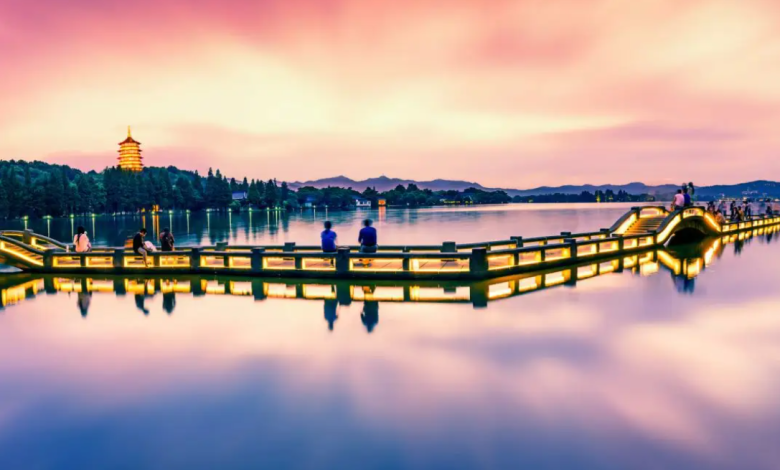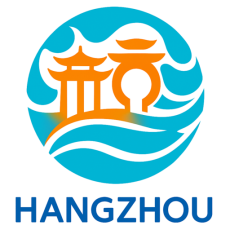
Hangzhou, the capital of Zhejiang Province in China, is a city steeped in history, tradition, and natural beauty. Known for its picturesque West Lake, rich cultural heritage, and long-standing influence on Chinese art, literature, and philosophy, Hangzhou has been a center of civilization for over 2,000 years. This article explores the city’s cultural legacy, from its ancient roots to its modern-day significance.
Historical Significance
Hangzhou’s history dates back to the Neolithic Liangzhu Culture (3400–2250 BCE), which is considered one of the birthplaces of Chinese civilization. The city gained prominence during the Sui Dynasty (581–618 CE) with the construction of the Grand Canal, linking it to Beijing and boosting trade and cultural exchange.
However, Hangzhou reached its zenith during the Southern Song Dynasty (1127–1279), when it became the imperial capital. This period marked a golden age of art, poetry, and philosophy, with Hangzhou emerging as a hub of commerce, education, and refined culture. Marco Polo, who visited in the 13th century, described it as “the finest and most splendid city in the world.”
West Lake: A Cultural and Spiritual Icon
At the heart of Hangzhou’s cultural identity is West Lake (Xi Hú), a UNESCO World Heritage Site renowned for its scenic beauty and historical significance. Surrounded by pagodas, temples, and gardens, the lake has inspired countless poets, painters, and scholars over the centuries.
The “Ten Scenes of West Lake,” including “Autumn Moon over the Calm Lake” and “Leifeng Pagoda in the Sunset,” have been celebrated in classical Chinese art and literature. The lake is also associated with legends such as The Legend of the White Snake, a famous Chinese folktale symbolizing love and sacrifice.
Tea Culture: The Birthplace of Longjing Tea
Hangzhou is synonymous with Longjing (Dragon Well) tea, one of China’s most famous green teas. Grown in the nearby hills, Longjing tea has been prized since the Tang Dynasty (618–907) and was designated as a tribute tea for emperors.
The China National Tea Museum, located in Hangzhou, offers deep insights into tea culture, including traditional tea ceremonies and the philosophy of “Cha Dao” (The Way of Tea). The tea-picking process, often accompanied by folk songs, remains an integral part of Hangzhou’s rural heritage.
Silk and the Grand Canal: Trade and Craftsmanship
Hangzhou has been a major silk production center since ancient times. The Hangzhou Silk Museum showcases the intricate process of silk-making, from silkworm cultivation to weaving. The city’s silk products were highly sought after along the Silk Road, reinforcing Hangzhou’s role in global trade.
The Grand Canal, another UNESCO World Heritage Site, further cemented Hangzhou’s economic and cultural influence. Stretching over 1,700 kilometers, it facilitated the exchange of goods, ideas, and traditions between northern and southern China.
Traditional Arts and Performing Culture
Hangzhou has nurtured various traditional art forms, including:
- Hangzhou Opera (Yue Opera): Known for its lyrical singing and elegant performances, it is one of China’s most beloved regional operas.
- Hangzhou Embroidery: A delicate craft often featuring landscapes and poetic themes.
- Paper Cutting and Fan Making: Intricate handicrafts that reflect Hangzhou’s artistic refinement.
Additionally, Lingyin Temple (Temple of the Soul’s Retreat), one of China’s most important Buddhist temples, houses ancient statues and rock carvings, embodying the spiritual depth of Hangzhou’s culture.
Modern Hangzhou: Blending Tradition and Innovation
Today, Hangzhou is a dynamic metropolis that harmonizes tradition with modernity. As the home of tech giant Alibaba, it represents China’s digital revolution while preserving its cultural roots. Annual festivals like the West Lake International Expo and Qiantang River Tide-Watching Festival attract global visitors, showcasing Hangzhou’s enduring appeal.
Conclusion
Hangzhou’s culture is a tapestry of history, nature, and artistry. From the poetic charm of West Lake to the delicate flavors of Longjing tea, the city embodies the essence of classical Chinese civilization while embracing contemporary progress. For those seeking to understand China’s cultural soul, Hangzhou remains an unparalleled destination.=





